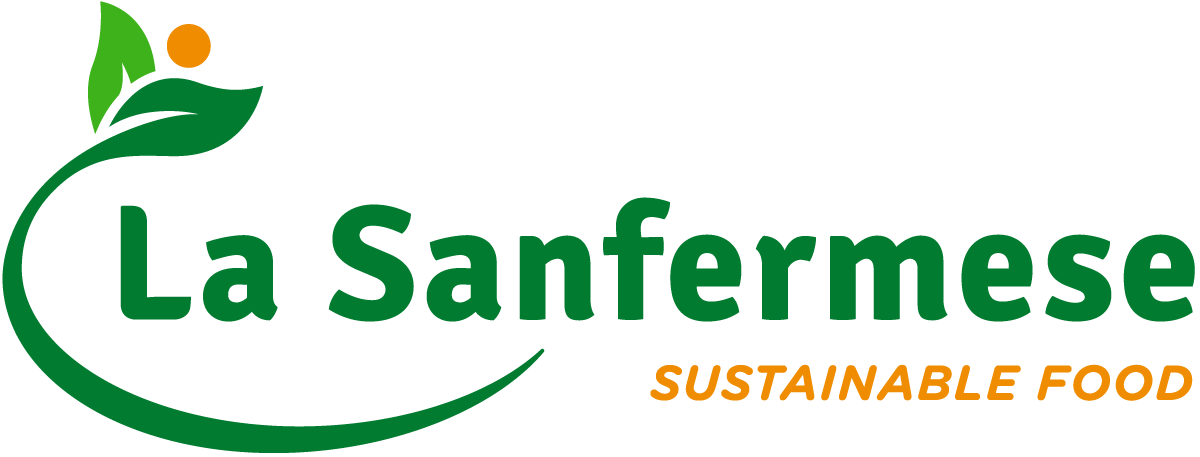Sanfermese S.p.A., which also owns the property of Corn Valley S.r.l., operates in the agri-food sector through dedicated cultivation chains with farmers, adopting modern principles of sustainable agriculture. Internal processing processes lead to the production of semi-finished products suitable for the food industry. The company uses 100% renewable electricity through a state-of-the-art photovoltaic system and the purchase of energy from certified renewable sources. This allows you to be energetically self-sufficient in storage and transformation processes.
Agriculture is a very impactful sector (it is estimated that 25% of global emissions annually come from the agri-food sector) and in fact puts us in the forefront against climate change. In this sense, a team of agronomists closely follows relations with farmers in order to provide them with all the assistance in terms of productivity, but above all of reducing waste and environmental impact.
With this in mind, we establish partnerships with companies that share with us the vision of sustainability in which the collaboration with Humana is perfectly integrated.
The collaboration with the non-profit organization Humana People to People Italia has allowed to realize two projects of circular economy with a positive environmental and social impact. The first gave a second life to the company’s no longer reusable work uniforms. Starting from their fabric Humana Italia, in collaboration with the Social Cooperative type B Occhio del Riciclone, designed and manufactured 22 bags and 60 key rings that were distributed to employees. Therefore, these garments have not been disposed of but have been transformed into new useful objects in everyday life. The second initiative was an extraordinary collection of used clothes at the company. Thanks to the generosity of the employees, 240 kilos of used clothing were allocated to the non-profit, which generated a significant positive environmental impact. By giving these garments a second life, in fact, it was possible to avoid the emission of about 1,460 kilos of CO2, save over 1.4 million liters of water and do not use 144 kilos of fertilizers and 72 kilos of pesticides.
The organization has been present in Italy since 1998 and currently offers its second-hand clothes collection and recovery services in over 1,200 municipalities with over 5,000 road containers, through which citizens entrust every year to Humana about 21.5 million pounds of clothes. About 67.5% of what Humana collects is re-used; about 25.5% is recycled to recover the fibers and a small part (7%) is destined for energy recovery. Humana follows the entire path that the garments do: from collection, to selection until sale (there are 15 Humana stores in Italy, to which e-commerce is added, and over 500 in Europe)with the aim of making the most of every single dress and ensuring a truly integrated and accounting system.
Thanks to this activity Humana Italia, which is part of the International Humana People to People Federation, finances and implements social and environmental projects in Italy and in the world. Humana is in fact present in 46 countries of Europe, Africa, America and Asia and thanks to its interventions reaches almost sixteen million people every year, improving their living conditions. The main areas of intervention of development projects are four: education and training, childcare and community development, prevention and fight against HIV/AIDS, malaria and tuberculosis, sustainable agriculture and food security.
*estimates based on the impact of the production of a corresponding quantity of new animals.

